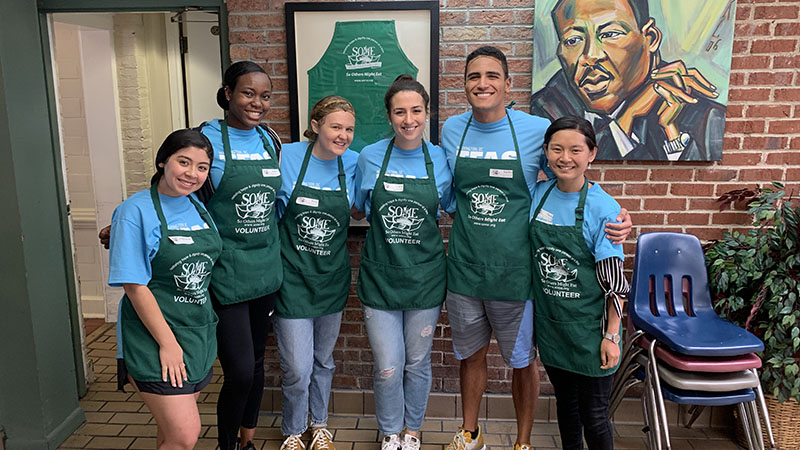
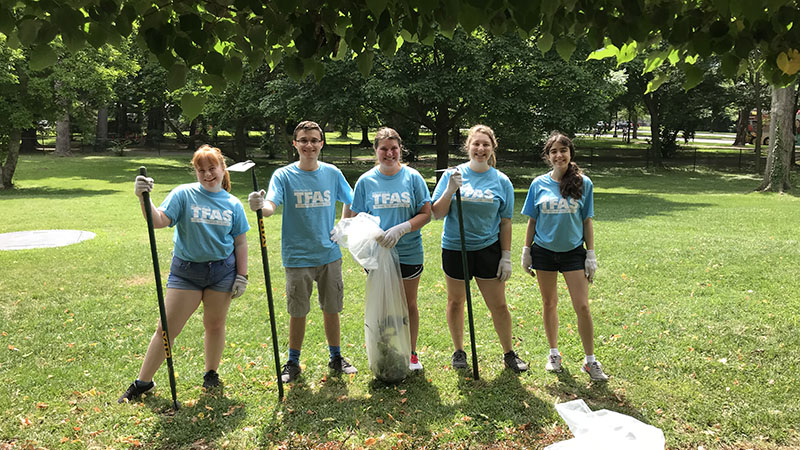
Paying it forward, being neighborly and lending support when others are in need are fundamental lessons that, historically, most Americans are raised on.
This unique history and desire for service sets America apart. So much so, that when French diplomat Alexis de Tocqueville visited the United States in 1831 to study its prisons, he returned with a greater understanding of community involvement and volunteerism and catalogued it carefully in his novel, “Democracy in America.”
While some may say these values are fading in today’s digitally-consumed and divided society, TFAS is continuing its commitment to ensuring each new generation learns and upholds a sense of civic duty and responsibility.

Late TFAS president and co-founder David R. Jones was a champion for philanthropy and considered it an essential element of free and prosperous nations. For more than two decades, TFAS has honored Jones’ legacy by hosting programs that teach the underpinning philosophies of philanthropy and why citizens, not governments, can best serve communities.
This summer, for the first time, TFAS opened this special programming to students across its D.C. Summer Program tracks, selecting outstanding leaders with a strong interest and aptitude for service leadership to participate in the inaugural TFAS Service + Citizenship Academy.
Programs like this one demonstrate the significance of local community involvement, and that we each play an integral role in the health of the community.” – Thomas Johnston ’19
Any TFAS D.C. Summer Program student who was interning with a nonprofit organization during the summer was eligible to apply to the Academy. Thomas Johnston ’19, a recent graduate from Lenoir-Rhyne University and intern with the American Council of Trustees and Alumni this summer, was one of 30 students selected for the inaugural program. Johnston said his internship, coupled with the additional Academy programming, provided a unique inside look into the life of nonprofits by allowing him to network with local leaders and expand his intellectual and service horizons.
“Programs like this one demonstrate the significance of local community involvement, and that we each play an integral role in the health of the community,” Johnston said.
SERVING + LEARNING
Outside of their intense schedule of classes, internships, guest lectures and professional development activities, the Academy participants took part in five extracurricular service-focused activities and academic discussions.
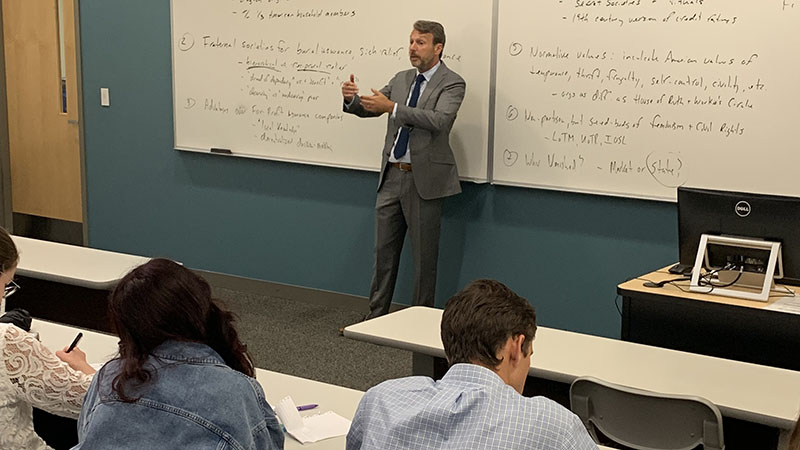
Through interactive lectures, TFAS professors Dr. Richard Boyd and Dr. Daniel Houser brought forth lessons on America’s unique history of philanthropy and the philosophical and economic underpinnings that allow for impactful service.
Boyd’s lecture on “Civic Associations in Tocqueville’s America” explored Alexis de Tocqueville’s novel “Democracy in America,” and how historic American values of local community engagement and active citizenship have declined in today’s society. Houser’s discussion on “Behavioral Economics” examined the emotional, cultural and social factors that affect economic decision making.
Academy student Jenny Hudson ’19 said Houser’s lecture gave her a “crash course in behavioral economics” that created a framework for understanding “how the world really works.”
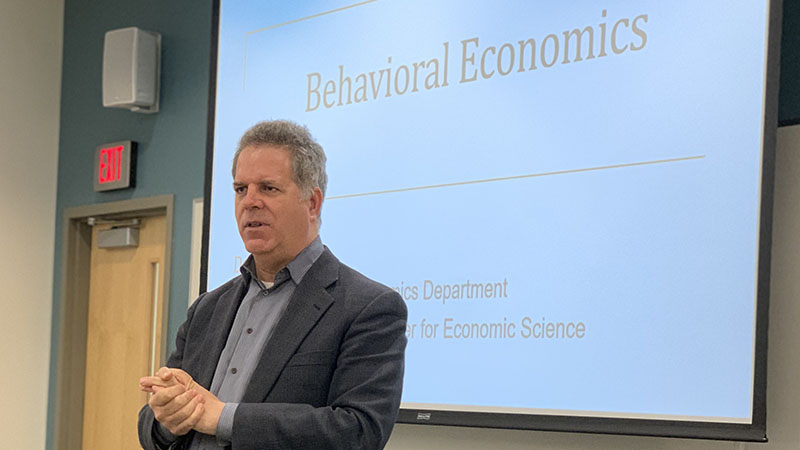
“The lesson on behavioral economics was essential in understanding why we experience poverty and other issues that nonprofits are created to address,” she said. “The lecture was good in framing human imperfection and why there’s a need for nonprofit and individual solutions, rather than government intervention, to help fill the gaps.”
Karlton Tate ’19, a senior at UNC Chapel Hill, said Professor Boyd taught him the importance of civil society and voluntary associations as a means for people to connect and have meaningful dialogue in a time where historic community ties are becoming increasingly unpopular.
“A lot of lectures at TFAS touched on this, too, that there is a growing issue of complete polarization that doesn’t leave room for dialogue between the left and the right,” Tate said. “I took away that what we really need to be doing is listening to understand rather than listening to respond and how civic associations allow for that.”

One highlight of the Academy was a special panel on Nonprofit Executive Leadership. Panelists including Lisa Chutjian, chief development officer for the Alexander Graham Bell Association for the Deaf and Hard of Hearing; Jacob Harold, president and chief executive officer of Candid; Bethany Rubin Henderson, chief executive officer of DC Scores; and Domonique James, communications director for College to Congress, shared their advice and experience from working in the nonprofit industry.
Hudson said this gave her exposure to new opportunities in the nonprofit world and helped her grasp the scope of possibilities for a meaningful career.
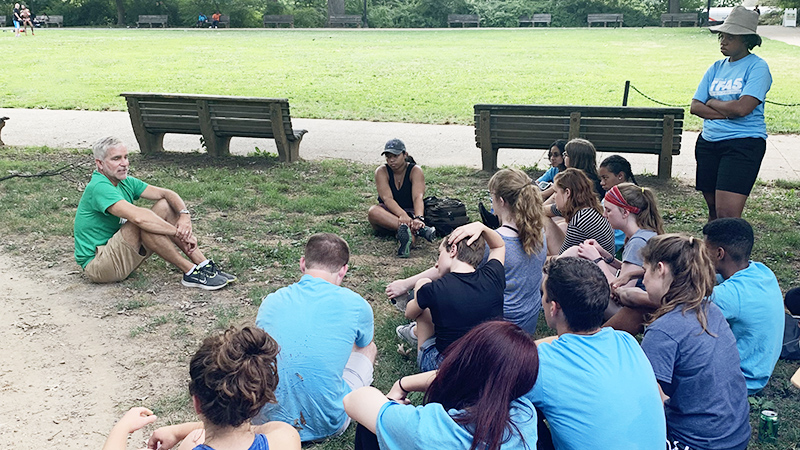
“I learned there is so much room to apply yourself, make a difference and find something that excites you,” she said. “There’s a lot of space for intelligent, motivated and passionate people to enter into the nonprofit sector to drive efficiency and impact.”
GIVING BACK TO THE COMMUNITY
At the TFAS Service + Citizenship Academy, learning opportunities were not confined to the classroom. Students took part in a special, two-part briefing and service project hosted by Washington Parks & People.
We learned the history of the area and then made a visible impact on the land.” – Valerie Cella ’19
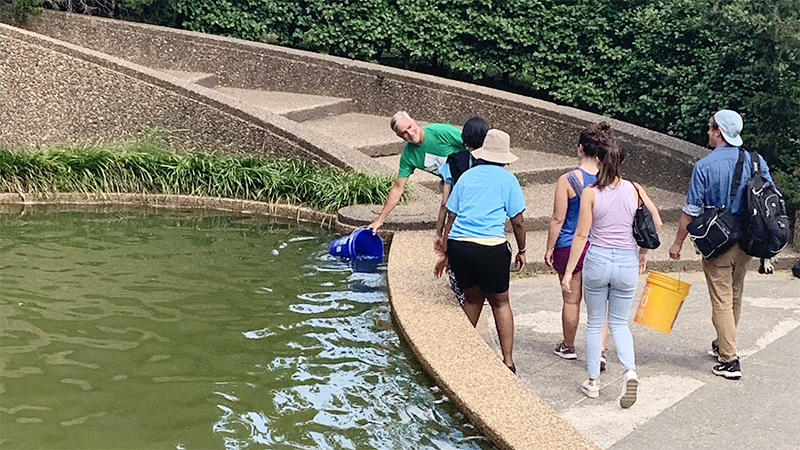
Jefferey Katz, a landscape architect for Washington Parks & People, spoke to students about the organization’s mission, how it was established and the park’s unique history within the D.C. community. Equipped with empowering stories, students joined Katz to clean up historic Meridian Hill Park directly following his lecture.
“The Washington Parks & People site briefing was impactful for the sense that we truly worked hard to help the community,” Cella said. “We learned the history of the area and then made a visible impact on the land.”
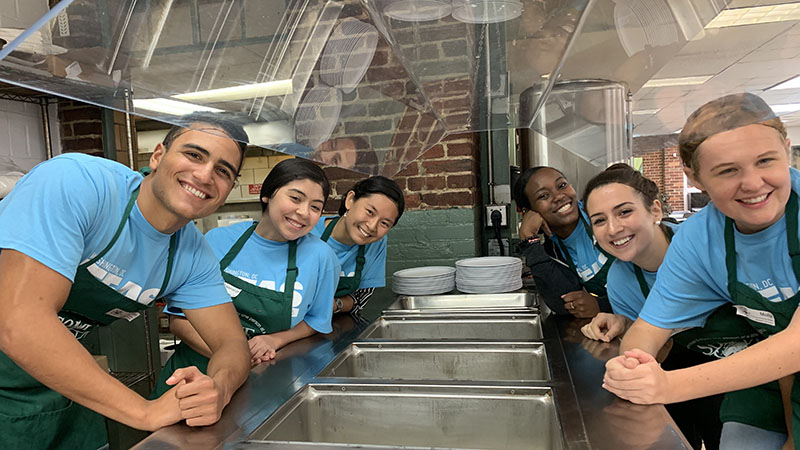
Academy students also played a significant role in the annual TFAS Service Saturday program by leading their fellow students in volunteer projects to plant trees, feed the hungry and clean up neighborhoods around the city.
Cella said this presented creatives ways to give back in a new city, something that isn’t always accessible in an intern’s busy schedule.
“Having the Service + Citizenship Academy meant that we could volunteer in addition to all of our activities at TFAS,” Cella said. “As an individual visiting D.C. for the summer, I never would have known where to volunteer at a homeless shelter or clean a park, but with the Academy, it opened my eyes to new opportunities.”
LEARNING + INTERNING
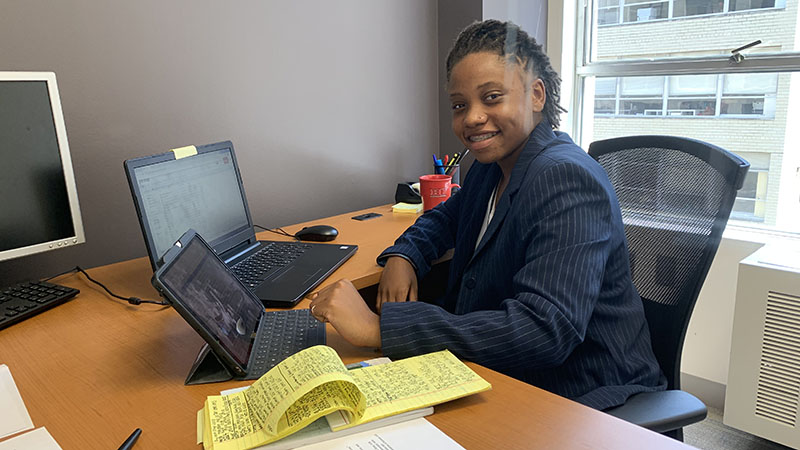
Throughout the summer, students in the Academy gained hands-on experience interning at think tanks, international development and direct service nonprofits.
Natalie Friend ’19, who interned at the Association for Diplomatic Studies and Training, said her internship allowed her to explore future career goals, acquire new skills and learn what it means to be a diplomat and work in foreign service.
“Through my internship, I have been fortunate enough to spend my entire summer deeply immersed in the experiences of American diplomats across history,” she said. “I have helped conduct interviews with retirees, done a lot of archival research and become familiar, not only with the oral history process, but with State Department culture, protocol and personnel.”
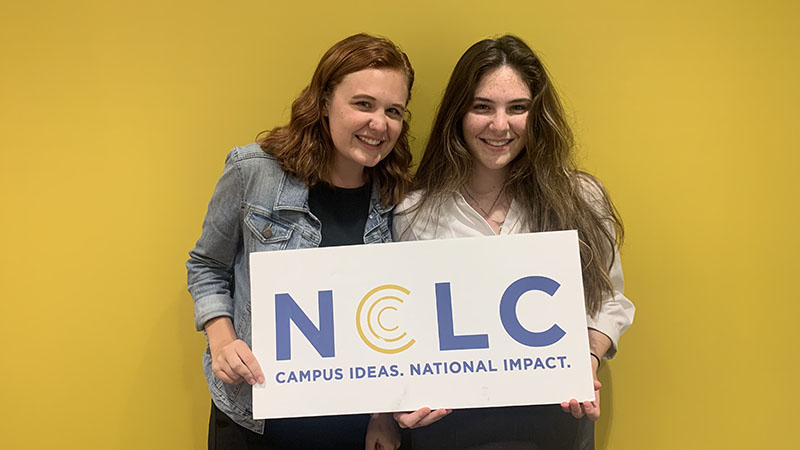
Hudson, who interned with the Mercatus Center, said the Academy’s focus on the mission and purpose behind nonprofits helped her understand how she can make an impact in her career.
“The TFAS Service + Citizenship Academy was continually putting an emphasis on the importance of mission,” she said. “It’s easy when you’re in the day-to-day to forget what’s driving the mission, and that was always a good lesson to carry into my work.”
A HISTORY OF SERVICE

The Service + Citizenship Academy evolved from TFAS’s decades-long tradition of teaching the importance of voluntary associations, philanthropy and leadership within a free society.
At the Academy’s closing ceremony, TFAS Executive Vice President Steve Slattery shared how David R. Jones’ emphasis on personal responsibility and community involvement invigorated the purpose and formation of the David R. Jones Center for Philanthropy and Leadership.
“Throughout his life, he always brought people together and inspired them to build communities and lasting institutions,” Slattery said. “He believed it was citizens, not government, who could best solve their own problems.”
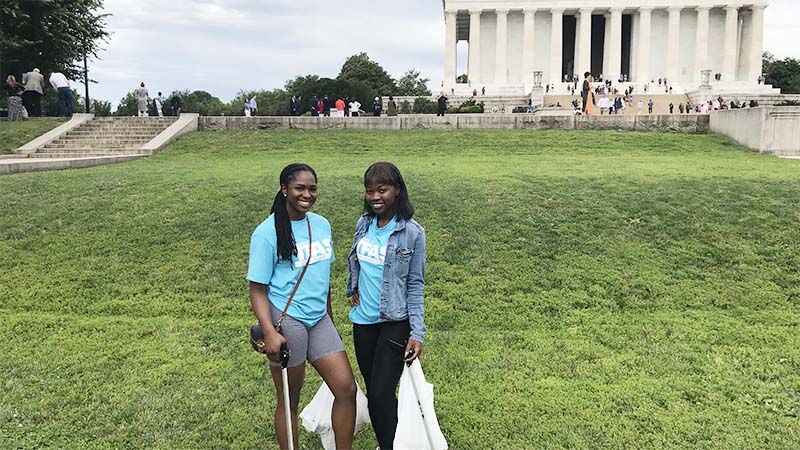
Following its establishment in 1998, the center has taken on several programs over the years. In 1999, TFAS joined with the Center on Philanthropy at Indiana University in Indianapolis to create the Institute on Philanthropy and Voluntary Service, a program where students interned at nonprofits in Indianapolis and took classes on philanthropy and leadership. The program eventually moved to Washington, D.C., in 2003 to join the TFAS academic internship programs as a new D.C. program track to broaden its impact to the nation’s capital.
Two decades following the center’s formation, TFAS ultimately transformed the program it into what it is today – the Service + Citizenship Academy – to allow students from across TFAS program tracks the opportunity to gain the skills, knowledge and experience to become future nonprofit leaders.
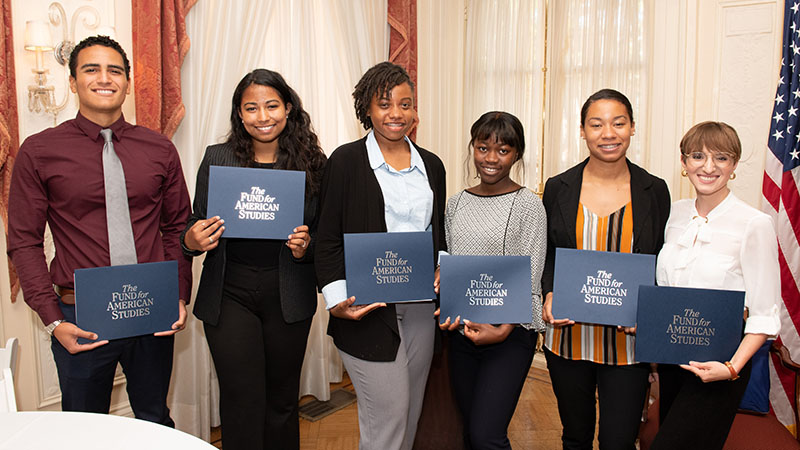
Through the Academy, TFAS continues to include the unique American values of philanthropy, community involvement and volunteerism in its curriculum to teach the beneficial ingredients of free societies to young people in America and around the world.
“A free-market economy is vital to creating wealth,” Slattery said. “Without the free-market economy, you wouldn’t have the exemplary nonprofit institutions that work to find solutions and give back to those in need.”
In addition to the Service + Citizenship Academy, TFAS teaches the importance of civic duty and service leadership through several of its programs and lectures including Dr. Michael Collins’ lesson on “The Good Society” at TFAS Prague, Dr. Bradley Thompson’s lessons on philosophy in free societies in TFAS Santiago and through seminars and retreats with the TFAS Curriculum of Liberty Seminars and the TFAS Public Policy Fellowship.
To learn more about how TFAS teaches personal responsibility, honorable leadership and economics through its unique curriculum, please visit TFAS.org/Programs.

